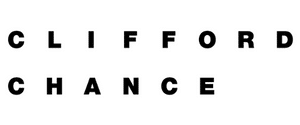Home ESG securitisation has the potential to play a key role in achieving the EU sustainable finance objectives
ESG securitisation has the potential to play a key role

Nienke van Stekelenburgh, Partner & Marijke van der Weide, Counsel, Global Financial Markets Group | Clifford Chance
With the Dutch AFM looking carefully into sustainable finance objectives, securitisation has a good chance of becoming an excellent vehicle to push the ESG transition forward. This is provided everyone agrees on the legal ground rules, explain Nienke van Stekelenburgh, Partner, and Marijke van der Weide, Counsel, from the Global Financial Markets Group at full-service law firm Clifford Chance in Amsterdam. Marijke van der Weide will join in the ESG Panel Discussion “What are the next steps?” at the Securitisation Event in Amsterdam.
Why is Clifford Chance well-positioned to advise on ESG developments in the Capital Markets space?
Nienke van Stekelenburgh: We are heavily involved in all kinds of industry work and regulatory engagement on ESG topics because this is an area where both industry initiatives and regulatory initiatives are (and remain) relevant. This includes, for example, the revision of the Green Bond Principles and the Social Bond Principles, where our focus is to cover securitisations more sensibly. By that I mean by acknowledging that securitisations can be ESG either because the underlying collateral being securitised is ESG (ESG assets securitisation) or because the funding raised by the securitisation will be used by the originator to create new ESG assets (ESG use of proceeds securitisation).
If anything, we feel the latter is very important to the ESG transition, since it allows originators to use legacy assets to fund the creation of new, more ESG-friendly assets.
Clifford Chance regularly produces client briefings on ESG related matters in the legal space. Since 2019 we have been hosting (online) ESG conferences which are very well attended by clients and other key players in the market. Clifford Chance was probably one of the first law firms in the world to focus on this aspect on this scale. Our ESG trends briefings also cover a wide range of developments in the ESG space. In fact, just this week we hosted a breakfast session for market participants on ESG.
Marijke van der Weide: On the capital markets and lending side, we do a lot of work in relation to green and sustainability linked loans. Most recently, we advised Obvion on the €500 million Green STORM 2023 RMBS issuance. The proceeds of these bonds will be applied to (re)finance a mortgage pool relating to energy-efficient houses, providing for the ‘green characteristics’ of this securitisation to meet the ICMA Green Bond Principles. We have been involved in the Green STORM transactions since Obvion’s first Green STORM RMBS entered into the market in 2016.
In many cases, we see that the ‘ESG element’ of the transaction still depends on the underlying exposures — being either a green asset, company, or loan — in which investors share the credit risk and the ESG characteristics thereof. From an investor’s standpoint we see that there is keen interest to avoid greenwashing. Also, the score of the ESG milestones of a portfolio underlying a securitisation should actually improve over the lifecycle of the instrument to evidence progress in the transition. We therefore believe that good-quality ESG data is absolutely crucial to take ESG in securitisations to the next level. This will also help to mitigate the risk of greenwashing.
What are the current “hot topics” of discussion regarding securitisation and ESG?
Nienke van Stekelenburgh: It’s all about the data! ‘Greenness’ in credit risk sharing transactions in the end really comes down to the availability of high-quality ESG data. We see that the focus point is shifting from green, to wider ESG securitisation. This triggers the discussion about how to label a securitisation as ‘green’ or ‘ESG’. We think it is key to continue to have the dialogue on improving the quality and quantity of the ESG data and agreeing on its measurement and reporting. Improved availability of standardised ESG data is key to the transition towards a more mature and robust sustainable securitisation market and to mitigate the risk of greenwashing. Because in the end, banks, investors, and regulators require this data to support their decisions.
Marijke van der Weide: In our view we have to balance the risk of greenwashing against the need to fund the ESG transition in the economy, which is an ongoing process. Market participants, including regulators, need to consider to what extent we allow (for example) hydrocarbon assets to be used as collateral to raise funds to create wind or other green forms of energy: the question is what is really green or ESG? This is also a discussion which is influenced by public opinion, in the end it is about all of us. We are moving towards a framework where we should be absolutely clear on the rules around what you are allowed to do and how you have to disclose it.
Nienke van Stekelenburgh: The need to fund the transition is a central challenge at the moment and this is a problem not only for securitisation (green assets versus green use of proceeds), but also more generally for investors falling within the scope of the Sustainable Finance Disclosure Regulation (SFDR) and asset managers creating SFDR Article 8/9 funds. Simultaneously, originators and issuers should carefully consider if all information is disclosed in a prospectus that is material for investors to make an investment decision, such as the firmness of forward-looking statements to disclose the ESG strategy of the originator and the risk of prospectus liability.
Do you see any market specifics for the Dutch market in terms of ESG considerations for securitisation transactions?
Marijke van der Weide: In the Dutch market we see that the Dutch financial regulator AFM is keen to be a front-runner in supervising the sustainable bonds market. The AFM recently said that sustainability of the financial markets is a strategic focal point and the sustainable bonds market, and the related trends and developments, receive specific attention from the AFM. The AFM considers it important that investors are able to form a responsible opinion about the issuer and the securities, also until further specific regulations in the field of sustainability come into force.
Nienke van Stekelenburgh: The AFM explains clearly what information it expects in prospectuses relating to the issuance of sustainable bonds and says it carefully reviews prospectuses submitted for AFM approval. The ‘green characteristics’ are to be disclosed in detail and based as much as possible on objective information. It is key to review these explanatory notes of the AFM and reflect this in a prospectus before submitting a first draft for AFM approval, while at the same time carefully considering what is material and fact check all the information disclosed in the prospectus with a view to the risk of prospectus liability. The additional disclosure requirements and fact-checking is taking more time, and updating prospectuses is becoming more costly. As a window in the market may be unpredictable nowadays, there is usually limited time available to get a no comment status of the AFM to announce a transaction. Clifford Chance is familiar with these processes, and we are happy that we have a smooth working relationship with the AFM.
What upcoming legislative changes are likely to impact the securitisation industry in terms of ESG-related themes?
Marijke van der Weide: ESG securitisation has the potential to play a key role in achieving sustainable finance objectives in the European Union. If we succeed with this, the impact can (and should be) huge! This is one of the reasons why Clifford Chance is heavily engaged in this topic. There have been a number of regulatory developments and initiatives in this area. These include:
- The joint consultation paper published by the European Supervisory Authorities in May 2022 regarding the draft regulatory technical standards with respect to certain sustainability disclosures for simple, transparent, and standardised securitisations.
- The EBA report on developing a framework for sustainable securitisation of June 2022.
- The European Commission’s review report of October 2022.
- The outstanding EBA industry survey to receive input from credit institutions on their green loans and mortgages and market practices related to these loans; and
- the recent political agreement on European Green Bonds Standard (EuGBS) and potential key requirements for alignment with EU Taxonomy.
Nienke van Stekelenburgh: Clifford Chance has been working closely with trade bodies and the co-legislators to emphasize the importance of more explicitly including securitisation in the standard under the EuGBS Regulation, and we are happy that we succeeded. We then moved on to helping provide technical support and advice in order to make the EuGBS proposals work better for securitisations. We will need to see the final wording following last month’s political agreement reached at trialogues in order to understand the extent to which our suggestions have been incorporated, but we remain hopeful that the EuGBS will be a positive development for green securitisation.
What do you hope to discover/learn/see at the Securitisation Event?
We are expecting interesting topics, relevant content and panels and enjoying the networking opportunities to catch up, meet and connect with people in the industry. We also hope to see more diversity in speakers on the panels.
For more information or tickets, visit the eventpage of the Securitisation Event 2023.
Download the brochure
Share
